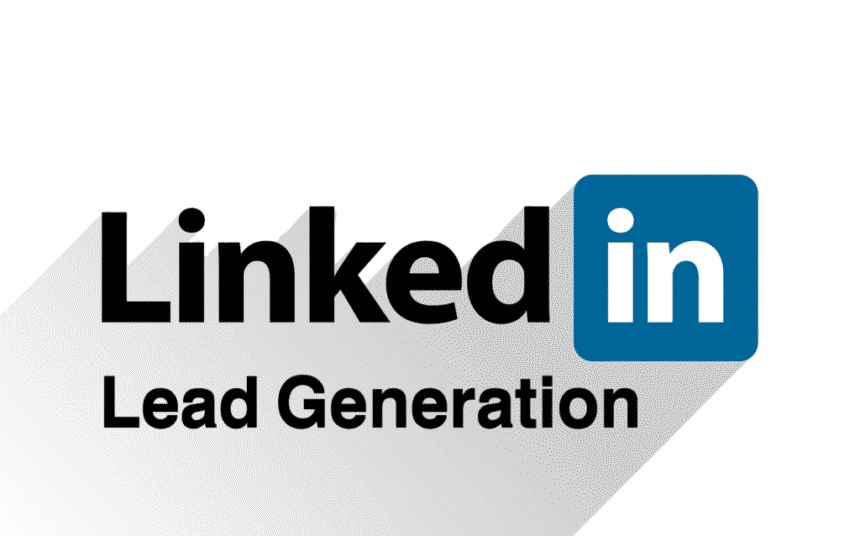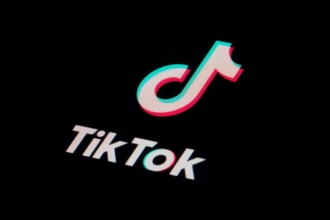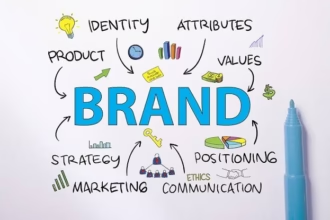Why Nigerian Businesses Are Sleeping on LinkedIn Lead Generation
Introduction
LinkedIn, the world’s premier professional networking platform, has quietly redefined how businesses across the globe acquire leads and cement partnerships. But in Nigeria’s brisk, opportunity-driven business landscape, a surprising number of local companies appear to be missing the boat when it comes to harnessing LinkedIn’s true potential for lead generation. In this deep dive, I’ll unpack the reasons behind this oversight, explore the untapped opportunities, highlight common pain points, and offer an actionable roadmap for Nigerian entrepreneurs eager to unlock LinkedIn’s full power.
Inner monologue: Writing about this topic makes me realize just how many overlooked revenue streams are hiding in plain sight! It’s equal parts frustrating and inspiring for those of us who love smart digital growth hacks.
The LinkedIn Lead Generation Opportunity—Why It Matters in Nigeria
Every month, millions of professionals—decision-makers, founders, managers—log onto LinkedIn to connect, learn, and do business. For Nigerian companies, this presents a rich, largely unexploited pool of potential clients, partners, and investors. Lead generation on LinkedIn isn’t just about cold messaging; it’s about building targeted, trust-based pipelines that can transform sales, enhance brand equity, and expand network footprints regionally and globally.
LinkedIn by the Numbers (Nigeria in Context)
While Facebook and Instagram typically steal the Nigerian social media limelight, LinkedIn boasts over 7 million Nigerian users (as of 2025), including C-suite executives across various industries—banking, ICT, oil and gas, consulting, fintech, education, and more. This means Nigerian businesses are sitting on a goldmine of decision-makers actively looking to build partnerships and explore new vendors, but only a fraction are actively mining these connections for leads.
Why Are Nigerian Businesses ‘Sleeping’ on LinkedIn?
Understanding why Nigerian companies underutilize LinkedIn helps point the way to solutions. These are the most common reasons I’ve observed:
1. Overreliance on Traditional Lead Generation Channels
Even in 2025, word-of-mouth, roadshows, WhatsApp broadcasts, and local events remain the go-to channels for Nigerian business development teams. These aren’t inherently bad, but they can be limiting in scale and tracking.
Inner monologue: There’s something about the power of a handshake and a face-to-face pitch that still resonates strongly here. But that leaves a gap for digital competitors to swoop in and snag online-savvy clients!
2. LinkedIn Is Viewed Solely as a “CV Platform”
Many Nigerian companies still see LinkedIn primarily as a place for job seekers and HR teams. This view causes sales and marketing teams to ignore or underinvest in ongoing LinkedIn lead generation campaigns.
3. Lack of Technical Know-How
Effective LinkedIn lead gen isn’t about spamming users with random requests. It requires crafting personalized outreach, mastering advanced search filters, leveraging LinkedIn Ads, and nurturing conversations—skills that aren’t widespread.
4. Inconsistent Content Strategy
Few Nigerian businesses have a strong LinkedIn content presence. It’s not enough to have a bare-bones page; companies must offer value, showcase expertise, and engage in meaningful dialogue with their audiences.
5. Fear of “Cold Pitching” and Online Etiquette
There’s an unspoken hesitation among Nigerian professionals to reach out “cold” and introduce their brand. Concerns about appearing spammy, intrusive, or inauthentic often stifle effective lead nurturing.
6. Language and Cultural Nuance
Global English dominates LinkedIn, but Nigerian businesses express themselves with a unique blend of formal and informal language. Many may feel uncertain about adapting their voice or fear their brand won’t “fit in” on the platform.
7. Unawareness of LinkedIn’s Advanced Paid Tools
Features like Sales Navigator, InMail, and LinkedIn Ads remain underused, mostly due to budget constraints or lack of awareness of their ROI in the Nigerian market.
Why LinkedIn Lead Generation Is a Game-Changer—for Any Nigerian Business
If you’re in B2B, consulting, tech, finance, or even the creative industry, LinkedIn can be a catalyst for:
Scaling outbound sales beyond local boundaries
Attracting high-intent leads actively searching for solutions
Building a credible personal or corporate brand
Networking with industry influencers and decision-makers
Identifying and recruiting top talent
Let’s break these down:
Direct Access to Decision Makers
Unlike most social platforms, LinkedIn connects you straight to business leaders, founders, investors, and budget owners. A thoughtful message or insightful comment on a post can spark meaningful conversations and open doors that would otherwise take months in traditional channels.
Data-Driven Targeting
With advanced search filters, you can segment your lead lists by industry, location, position, and company size. Sales Navigator turbocharges this by surfacing “best fit” prospects based on your exact criteria.
Brand Authority Through Thought Leadership
Regularly publishing insightful posts and articles can establish you (or your business) as a niche authority, attracting inbound leads and collaboration opportunities while making your sales outreach “warm” rather than “cold.”
Trackable ROI and Analytics
LinkedIn provides granular engagement stats—profile visits, post impressions, ad click-throughs—so you can measure what’s working, iterate, and double down.
What Nigerian Brands Are (and Aren’t) Doing on LinkedIn
From my experience and research, here’s what I see:
What Most Businesses Are Doing:
Setting up a company LinkedIn page (mostly for appearances)
Occasionally posting job ads or congratulatory employee highlights
Rarely engaging in comments or sharing thought leadership content
What the High-Flyers Are Doing:
Leveraging personal founder/executive profiles for outreach
Posting in-depth case studies, value-driven articles, and video explainers
Running sponsored InMail and LinkedIn Ads targeting specific industries
Engaging—genuinely—in relevant community groups
The Consequences of Ignoring LinkedIn Lead Gen
If Nigerian brands continue sleeping on LinkedIn, they risk:
Missing out on high-value, international business deals
Losing relevance in the eyes of digital-first competitors
Relying too heavily on local contacts and static networks
Failing to future-proof their business development strategies
Common LinkedIn Lead Generation Mistakes I See in Nigeria
It’s easy to get it wrong—and here’s how it usually goes sideways:
Generic connection requests with no context
Hard selling seconds after connecting
Neglecting profile optimization (unprofessional bios, no profile picture)
Posting content inconsistently—or not at all
Ignoring comments and direct messages from prospects
Relying exclusively on the company page, rather than activating employee or leadership networks
How to Master LinkedIn Lead Generation: A Nigerian Playbook
Ready to turn it around? Here’s how I’d approach LinkedIn lead generation as a Nigerian business owner, team leader, or entrepreneur:
1. Optimize Your Profiles
Start with the basics—polish your personal and company pages. Use a professional (not overly formal!) headshot, write a keyword-rich headline, and craft a summary that highlights the problems you solve for your target industry. Don’t forget to add visual content: banners, infographics, or quick introductory videos.
2. Build a Consistent Content Schedule
Share value-driven posts, stories, and articles at least 2–3 times a week. Focus on:
Industry insights relevant to Nigerian markets
Case studies featuring local clients and successes
Thought-provoking commentary on current business trends
Employee highlights, brand values, and behind-the-scenes stories
3. Target the Right Audience
Use LinkedIn’s search to filter by:
Industry sector
Geographic region (Nigeria, West Africa, diaspora)
Company size
Seniority level (founder, director, manager, etc.)
Once you’ve built a prospect list, study their activity to personalize your outreach.
4. Personalize Outreach—Never Spam
Send connection requests with a brief, tailored note. Reference a recent post, event, or specific business challenge. Don’t sell immediately—start a natural conversation, listen, and provide value first.
5. Activate Your Employee Networks
Encourage employees to update their LinkedIn profiles and share company content. A connected, authentic employee presence amplifies your reach and builds trust in ways company pages can’t match.
6. Experiment with Paid LinkedIn Tools
If budgets allow, test tools like Sales Navigator (for supercharged prospecting), InMail (for targeted cold outreach), or LinkedIn Ads (for brand awareness and lead capture campaigns). Monitor your results and double down on what works.
7. Track, Tweak, Repeat
Monitor metrics—profile visits, post reach, conversion rates. Analyze what works, iterate your approach, and stay agile. LinkedIn’s platform is always evolving, so stay plugged in to new features and best practices.
8. Join and Engage Local LinkedIn Groups
Seek out industry- or region-specific “Nigerian SMEs,” “Tech Founders,” or “Women in Business” groups. Add insights, answer questions, and become a go-to voice. This is a gateway to warm, qualified leads.
Overcoming Barriers: Nigerian Solutions to Nigerian Challenges
Language and Cultural Fit
Experiment with a blend of global business English and conversational Nigerian wit. Stories, idioms, and even Pidgin (used thoughtfully) can spark engagement when your audience is primarily local or regional.
Bandwidth and Device Accessibility
For SMEs struggling with tech access, focus on mobile-first strategies, schedule posts during business hours, and leverage LinkedIn’s lightweight app for core actions.
Budget Constraints
Start with organic strategies: optimized profiles, consistent content, engaging comments. As results come in, reinvest wins into paid campaigns. Most growth on LinkedIn starts for free.
Building Confidence
Run small-scale outreach experiments. Celebrate wins—every warm conversation, event invite, or business inquiry. Education and practice are the ultimate antidotes to cold-pitch anxiety.
Success Stories: Nigerian Businesses Winning on LinkedIn
Consider the following examples:
Fintech startups: By sharing regular updates on new features, awards, and case studies, these companies have secured partnerships with local banks and even foreign investors.
Legal and consulting firms: Law practices have landed major contracts and referrals from targeted thought leadership posts celebrating client wins, explaining regulatory changes, and engaging with fellow professionals on trending topics.
HR and recruitment agencies: Regular posting of employer branding content, candid testimonials, and whitepapers on employment trends has led to high-value deals with blue-chip clients, sourced primarily via LinkedIn.
Inner monologue: Each of these examples highlights how powerful it is when Nigerian businesses shift from passive presence to active participation. The playing field is wide open!
The Future: How LinkedIn Lead Generation Could Transform Nigerian Business
As more local businesses wake up to LinkedIn’s power, we’re likely to see:
More B2B deals originating from LinkedIn conversations, bypassing gatekeepers
Nigerian startups and SMEs attracting global partners and investors
Greater professionalization of sales and marketing roles, with LinkedIn skills front and center
LinkedIn becoming a core pillar in digital transformation agendas, not just a hiring hub
Final Recommendations for Nigerian Businesses Ready to Wake Up
Challenge the old view of LinkedIn as “just for CVs”
Assign ownership of LinkedIn strategy to specific team members
Invest in LinkedIn training, profile optimization, and continuous learning
Foster a company-wide culture of thought leadership and storytelling
Track ROI methodically, just as you would your website, email, or ad campaigns
Conclusion
Nigeria’s business landscape is too dynamic—and the world is moving too fast—for companies to sleep on lead generation’s most underleveraged social platform. LinkedIn offers a uniquely powerful way to connect, build credibility, and grow pipelines that cross local and global borders. The businesses that wake up to this new reality stand to win the biggest. Are you ready to join them? Contact us Today
Image Source: Alore.io





